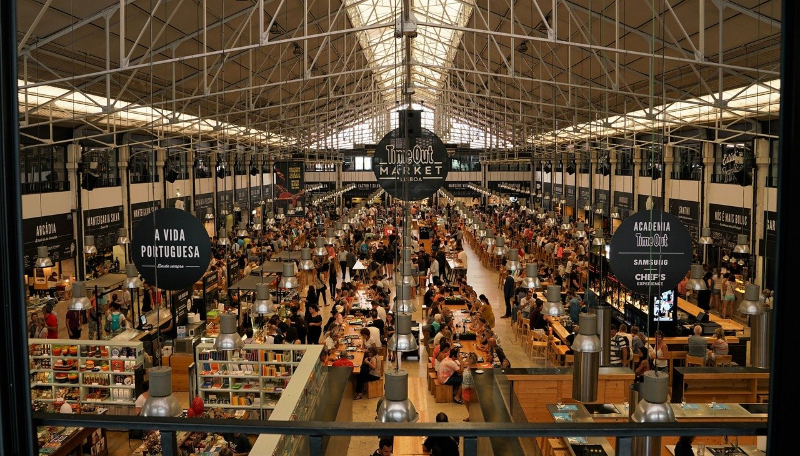
Two of the top restaurant mavens in Seattle, Tom Douglas and Ethan Stowell, are closing restaurants. A kind of survival-of-the-best-formulas is going on, and the golden age of experimentation (and California migration) may be fading. What gives?
There are obvious explanations: a glut of new restaurants, too much easy money chasing investment opportunities, soaring rental rates, nervous lenders with short patience, unsafe downtown streets, shortage of chefs. Then there are the less obvious explanations. One is the hard-to-figure cost of minimum wage boosts, as well as the scheduling requirements. This is such a heated topic in Seattle’s political boxing ring that it is virtually unmentionable. ‘
Another less-discussed factor is the shift from eating out to ordering in. A friend in commercial real estate tells me that apartment lobbies are now so jammed with delivered packages and meals that the reception areas are having to be redesigned to handle all the bundles. Some restaurants can stay ahead of this trend by joining the rush to deliver meals. But long-term, that empty feeling in the restaurant further drives customers away. One might also mention another new form of competition: food trucks.
Lastly, Tom Douglas recently told me that all those restaurants crowding into tech zones like the Ama-zone are finding that tech workers work late and pay so much for renting apartments that they are unreliable customers at dinnertime. (Making up the shortfall: tourists.)
Here’s a suggestion for stimulating more interest in Seattle cuisine. Take a portion of the soon-empty bottom floors of the downtown Macy’s and convert it into a European-style food hall with open kitchens, demonstrations, tastings, exotic cuisines, extensions of Pike Market flower stalls, music and dance. Here’s a good example, the Cite Internationale de la Gastronomie de Lyon. Attention Starwood, manager of the Macy’s building, whose upper floors are now full of Amazonians.
Discover more from Post Alley
Subscribe to get the latest posts sent to your email.

Good idea, David.Here’s another:Seeing how badly pacific place seems to be doing with few new retailers moving into the depleted building, turning it into a downtown entertainment complex – more movie and live performance spaces, more restaurants, a few music venues,a place to dance and drink, a gaming space or even a bowling alley where barnesand noble is vacating…that will bring people downtown at night. Right now it’s a retail ossuary .
Perhaps people are ordering in rather than eating out because the vast majority of restaurants are so noisy that it is impossible to carry on a conversation and one leaves with a headache from the noise level. For a number of years, many restaurants have planned a “lively” space with little attention to acoustics. Perhaps they are now reaping the results of that concept.
Let’s not read too much into this. Restaurants close all the time. This is nothing new. Restaurants are notoriously difficult to run profitably. Ethan Stowell and Tom Douglas are smart businessmen, but they are hardly immune from the basic economics of the food service industry. Especially Stowell, who has done a lot of interesting experiments with high-end eating experiences.
Also note that Stowell is retooling a couple of his restaurants, not closing them entirely.
As I recall from a few years past reviewing restaurants, the average life of a restaurant was one year. I doubt this has changed much. It is a notoriously difficult business. You have to have a good product, good managerial skills and eager clientele. The hours are long and the headaches many. I have only great admiration for those who can make it work. I savor every bite.
Sometimes it’s the parking. Perhaps need more valet service – free maybe.
Carolyn Staley
Another thing. There are many exceptions, and of course tastes vary. But too often the food isn’t very good. Diners’ appreciation for good food has exceeded the industry’s ability to cook and serve it.
Higher rent, increased labor costs and an emerging new consumer seeking a dinning value all have put pressure on the restaurant operator. The increased operating (and food costs) have increased the menu price and now a moderately price meal is considered expensive. The concern should not only be the loss of great places to dine and have a fun evening out. It should be for the thousands of servers who will make less money (tips) with the new minimum wage laws and job opportunity as lower priced, non serviced business open up. .
Learn to cook.